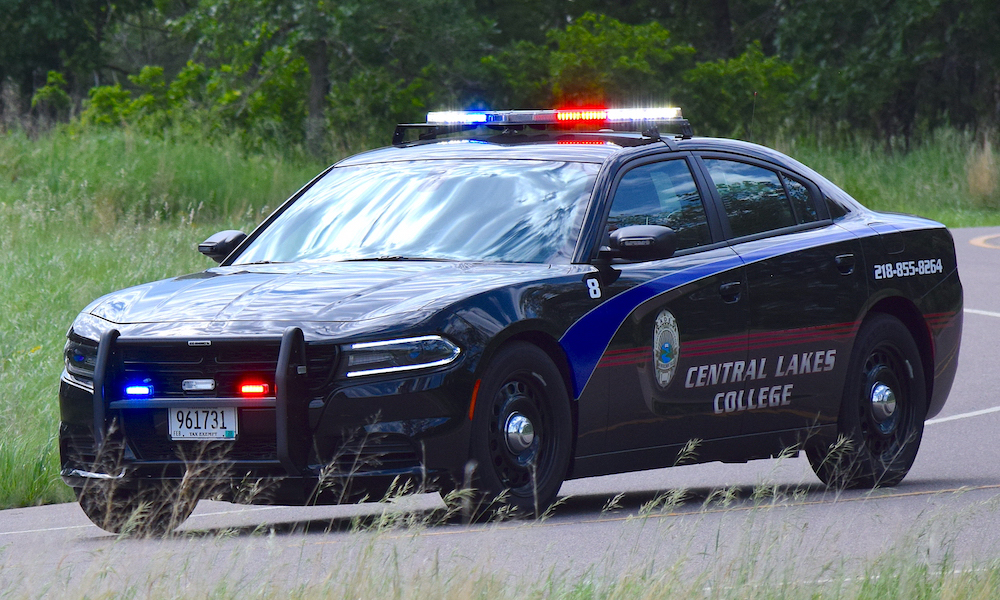Career Description
This transfer pathway degree applies to those interested pursuing a bachelor’s degree in Criminal Justice, and other areas of the justice system. This is a non-peace officer licensure track.
Program Information
The Criminal Justice Transfer Pathway provides students with a valuable opportunity to complete an Associate of Science degree that seamlessly transfers to designated bachelor’s degree programs within the Minnesota State university system. While designed to prepare students for law enforcement roles, this pathway also supports students pursuing non-licensed peace officer tracks and careers in the broader Criminal Justice System. This includes individuals interested in working in criminal justice administration, practicing law, or engaging in political advocacy and public policy. The curriculum allows students to transfer into bachelor’s programs, such as Criminal Justice, with junior-year status, ensuring that all credits apply directly to their chosen degree. Minnesota State universities that accept these transfer credits include Bemidji State University, Metropolitan State University, Minnesota State University Mankato, Minnesota State University Moorhead, Southwest Minnesota State University, St. Cloud State University, and Winona State University.
Program Outcomes
Graduates will be able to:
- Analyze the structure, processes, and relationships between Minnesota Peace Officers and the correctional system, while evaluating their broader social and institutional contexts.
- Demonstrate awareness of diversity and cultural differences, applying maturity, ethics, compassion, and adaptability in addressing the needs of clients and communities.
- Interpret and apply theories, laws, policies, and practices related to juvenile delinquency and deviant behavior, while evaluating their social and ethical impacts.
- Understand and explain the roles and interactions of the legislative, judicial, and executive branches in the creation and enforcement of criminal law.
- Demonstrate proficiency in oral and written communication, and analyze leadership roles and the effects of racial oppression, as they intersect with gender, class, sexuality, disability, and other social identities.
- Prepare to engage as ethical public servants, with a focus on protecting communities and respecting the constitutional rights of all citizens.
Special Program Requirements
In addition to the program requirements, students must meet the following conditions in order to graduate:
- Students must achieve a grade of “C” or higher in all courses required in the program;
- College Cumulative GPA Requirement: cumulative grade point average (GPA) of credits attempted and completed at CLC must be at least 2.0;
- College Technical Core GPA Requirement: cumulative GPA of credits attempted and completed towards the technical core of the diploma or degree must be at least 2.0; and
- Residency Requirement: students must complete 25% of their credits at Central Lakes College.
Transfer Opportunities
This transfer pathway in Associate of Science in Criminal Justice will transfer to the following majors: • Bemidji State University: Criminal Justice- Law Enforcement Emphasis • Metropolitan State University: Criminal Justice, B.A. • Minnesota State University, Mankato: Criminal Justice, B.S. • Minnesota State University, Moorhead: Criminal Justice, B.A. • St. Cloud State University: Criminal Justice, B.A.
Employment Statistics
For more information regarding employment statistics, career salary information and estimated job growth, follow the resource links below:
https://apps.deed.state.mn.us/lmi/ces/
http://www.bls.gov/ooh/home.htm
Salary information from indeed.com

Program Course Requirements
Required Discipline Courses (14 credits)
CRJU 1112 Peace Officers and the Community, 3 cr
CRJU 1125 Personal Protection Awareness, 2 cr
CRJU 2106 Fitness for Minnesota Peace Officers, 2 cr
CRJU 2126 Racial and Ethnic Awareness for Minnesota Peace Officers, 4 cr
CRJU 2140 Behavioral Science for Peace Officers, 3 cr
Required MnTC Courses (46 credits)
***Completion of the 40-credit MnTC is required for transfer.
Goal 1 – Communications, 9-11 cr
COMM 2420 Intercultural Communication (Goals 1,7A,7B) OR
COMM 2422* Honors Intercultural Communication (Goals 1,7A,7B)
ENGL 1410* Composition I (Goal 1) OR
ENGL 1420* Honors Composition I (Goal 1)
ENGL 1411* Composition II (Goal 1) OR
ENGL 1421* Honors Composition II (Goals 1,9)
Goal 2 – Critical Thinking**, 1 course
Goal 3 – Natural Sciences, 6 cr
2 disciplines recommended, 1 lab course required
Goal 4 – Math/Logical Reasoning, 3-5 cr
Strongly recommended
MATH 1460* Intro to Statistics (Goal 4) OR
MATH 1461* Honors Intro to Statistics (Goals 2,4)
Goal 5 – History/Social Behavioral Sciences
PSYC 2441 Social Psychology (Goals 5,7A), 3 cr
SOCL 1401 Intro to Sociology (Goals 2,5), 3 cr
SOCL 2405 Criminology (Goal 5), 3 cr
SOCL 2481 Race, Ethnicity and Oppression (Goals 5,7B), 3 cr
Goal 6 – Humanities and Fine Arts, 9 cr
2 disciplines required, 3 recommended
PHIL 2420 Ethics (Goals 6,9) OR
PHIL 2421* Honors Ethics (Goals 6,9)
Goal 7 – Human Diversity**, Met with required course
Goal 8 – Global Perspective**, 1 course
Goal 9 – Ethic and Civic Responsibility**
CRJU 1401 Criminal Justice (Goal 9), 3 cr
CRJU 1404 Juvenile Justice (Goal 9), 3 cr
Goal 10 – People and the Environment**, 1 course
*Denotes prerequisites
**Many courses from Goals 1 – 6 also meet Goals 7 – 10. Credits count only once. Students are advised to select MnTC courses with multiple goal assignments whenever possible.
GRADUATION REQUIREMENT – 60 CREDITS
Program Instructors
| Photo | First Name | Last Name | Position | Department | Phone | Alt. Phone: | URL | wdt_ID | Details | |
|---|---|---|---|---|---|---|---|---|---|---|
 |
Aubrey | Beadell | Advisor | TRIOStudentSupportServices | (218) 855-8014 | aubrey.beadell@clcmn.edu | 1 | More details | ||
 |
Nick | O'Reilly | Occupational Skills Program College Lab Assistant | OccupationalSkills | 218-855-8077 | Nicholas.oreilly@clcmn.edu | 2 | More details | ||
 |
Kevin | Lomax | Automotive Lab Assistant | Automotive Faculty | 218-855-8000 | KLomax@clcmn.edu | 3 | More details | ||
 |
Jody | Flynn | Accessibility Services Assistant | Accessibility | 218-855-8056 | jody.flynn@clcmn.edu | 5 | More details | ||
 |
Deana | Bobzien | Instructor | CollegeCareerStudies - Mathematics - Supportive Services | 218-855-8339 | deana.bobzien@clcmn.edu | 7 | More details | ||
 |
Brianna | Rajkowski | Advisor | TRIOStudentSupportServices | 218-855-8228 | brianna.rajkowski@clcmn.edu | 8 | More details | ||
 |
Tajia | Anderson | PSEO Specialist | Admissions - CollegeCreditInHighSchool- PSEO | (218) 855-8079 | tajia.anderson@clcmn.edu | 10 | More details | ||
 |
David | Gray | Instructor | History | 218-855-8189 | david.gray@clcmn.edu | 14 | More details | ||
 |
Jim | Nagy | Adjunct Instructor | GraphicDesign | 218-855-8157 | james.nagy@clcmn.edu | 15 | More details | ||
 |
Brandon | Schneider | Instructor | HeavyEquipment | 218-894-5179 | brandon.schneider@clcmn.edu | 16 | More details | ||
 |
Natalia | DePauw | Director of Dual Enrollment | PSEO - CollegeCreditInHighSchool - Advising | 218-855-8263 | natalia.depauw@clcmn.edu | 18 | More details | ||
| Amy | Disterhaupt | Admissions Specialist | Admissions | 218-855-8250 | amy.disterhaupt@clcmn.edu | 20 | More details | |||
 |
Nick | Heisserer | Dean of Brainerd Career & Technical Programs | Administration | 218-855-8067 | nick.heisserer@clcmn.edu | 21 | More details | ||
 |
Matthew | Krueger | Environmental Health and Safety Officer | Maintenance - Security - Safety | 218-855-8115 | matthew.krueger@clcmn.edu | 22 | More details | ||
 |
Mark | Lindquist | Instructor | Music | 218-855-8203 | mark.lindquist@clcmn.edu | 23 | More details | ||
 |
Jeremy | Goddard | Bookstore/Print Shop | Bookstore Supportive Services | 218-855-8146 | Jeremy.Goddard@clcmn.edu | 25 | More details | ||
 |
Sarah | Jennissen | Instructor | PracticalNursing | 218-894-5308 | sarah.jennissen@clcmn.edu | 26 | More details | ||
 |
Cash | Robinson | Academic Advisor | TRIOUpwardBound - Advising | 218-855-8035 | cash.robinson@clcmn.edu | 28 | More details | ||
 |
Ryan | Wright | Enrollment Representative | Admissions - CampusTours | 218-855-8013 | ryan.wright@clcmn.edu | 31 | More details | ||
 |
Steve | Wenzel | Instructor | PoliticalScience | 218-855-8073 | stephen.wenzel@clcmn.edu | 32 | More details | ||
 |
Julie | Woitalla | Instructor | NursingASDegree - PracticalNursing | 218-855-8168 | julie.woitalla@clcmn.edu | 33 | More details | ||
 |
Josh | Zaborowski | Upward Bound Advisor | TRIOUpwardBound - Assessment | 218-855-8032 | joshua.zaborowski@clcmn.edu | 35 | More details | ||
 |
Paul | Zimmerman | Instructor | Diesel Faculty | 218-894-5143 | paul.zimmerman@clcmn.edu | 36 | More details | ||
 |
Ed | Uhlenkamp | Instructor | FarmBusinessManagement | 218-894-5160 | edward.uhlenkamp@clcmn.edu | https://dynamicforms.ngwebsolutions.com/ShowForm.aspx?RequestedDynamicFormTemplate=32c40b45-028c-46d6-9f79-9c1edc503713 | 38 | More details | |
 |
James | Velde | Instructor | FarmBusinessManagement | 218-234-3981 | james.velde@clcmn.edu | https://dynamicforms.ngwebsolutions.com/ShowForm.aspx?RequestedDynamicFormTemplate=cff3bff4-005f-4f5c-82a8-4c6aed02c8e9 | 39 | More details |
Photo:
First Name:
Last Name:
Position:
Phone:
Email:
